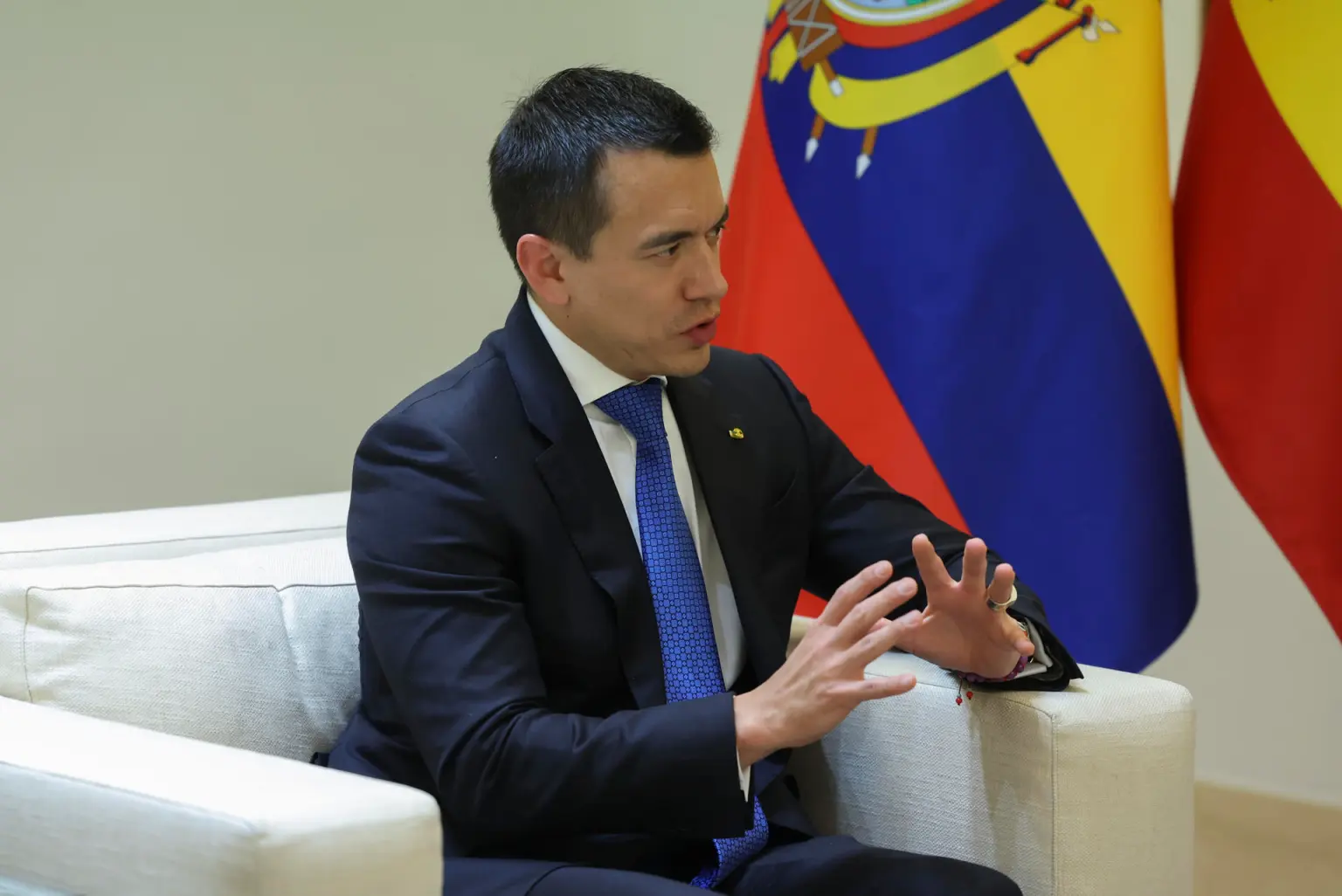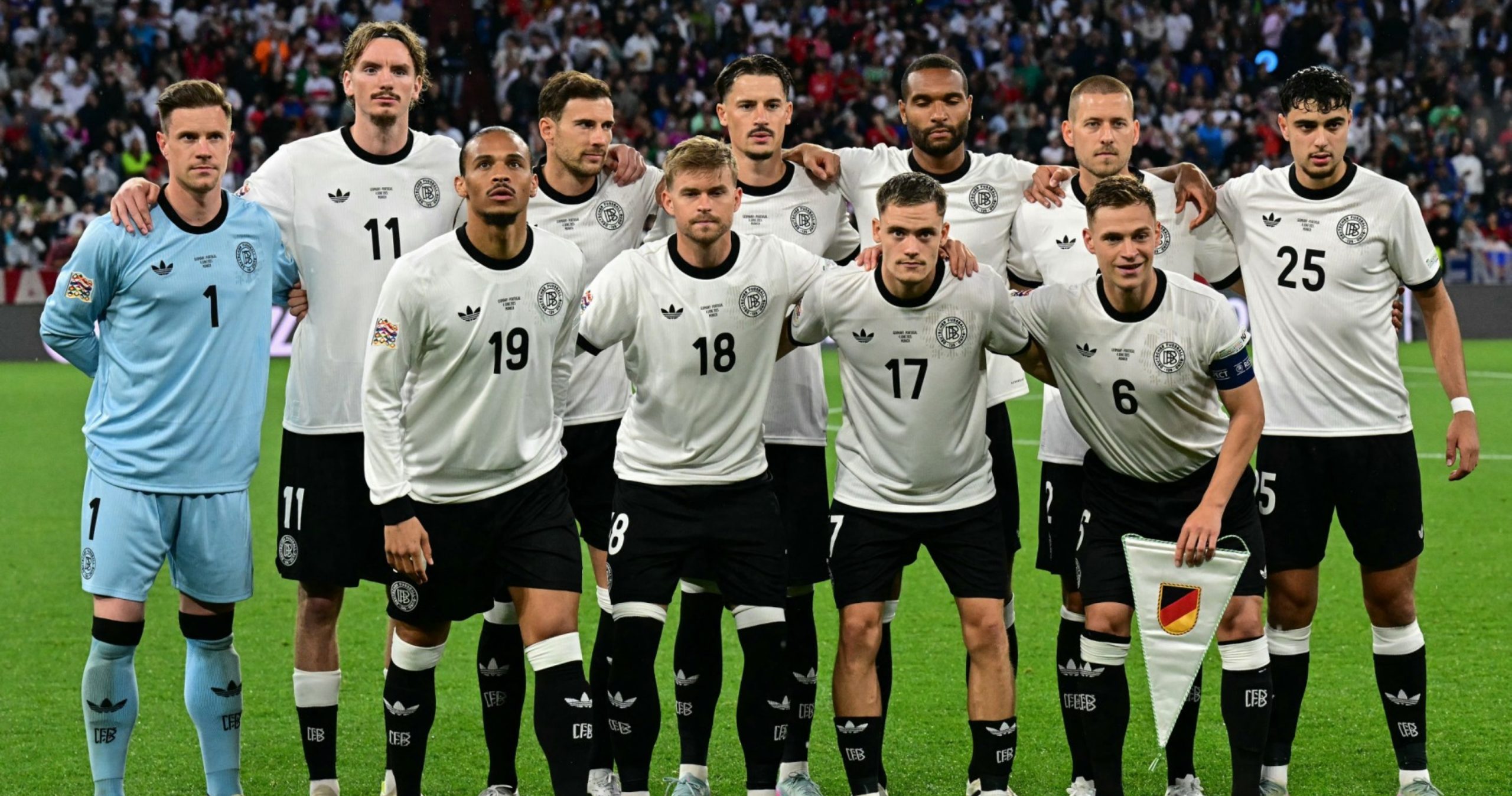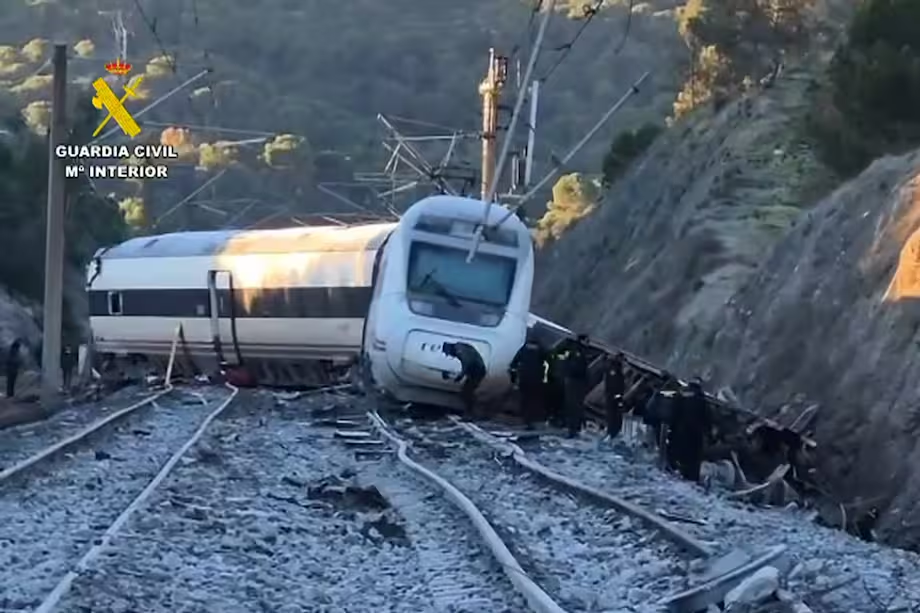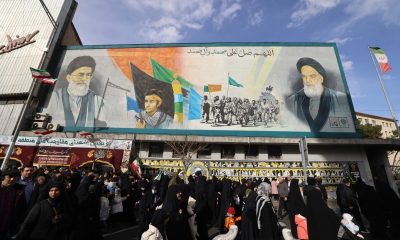International
Noboa’s 100 days in office: Ecuador’s president steers tough crime policies and economic overhauls

Ecuador’s President, Daniel Noboa, celebrates one hundred days in office with significant popularity, attributed to his firm stance against crime, declaring an “internal armed conflict,” and driving economic reforms to stabilize the state’s finances, including an increase in the value-added tax (VAT).
Assuming office at 35 in November last year, the youngest president in Ecuador’s democratic history inherited a nation grappling with soaring crime rates, primarily driven by criminal syndicates, notably those involved in drug trafficking. Additionally, Ecuador faced a substantial fiscal deficit of $4.8 billion, nearly 5% of the gross domestic product (GDP).
Noboa has garnered support for economic reforms in the National Assembly, a body that acted as a barrier for his predecessor Guillermo Lasso between 2021 and 2023.
Noboa’s Economic Reforms
The government’s political maneuverability, manifested in “mobile majorities” in the Assembly, has facilitated Noboa’s efforts to raise additional funds to address the country’s economic crisis and combat insecurity. Notably, the VAT increased from 12% to 15% starting April.
On January 9, the government faced one of the toughest moments in recent years when an armed group stormed a television channel during a live broadcast, coinciding with violent incidents in the streets and riots in several prisons, resulting in the release of 200 hostages, including police officers and guards.
All this occurred amid a state of emergency, followed by the declaration of an “internal armed conflict” against criminal gangs, which Noboa labeled as “terrorists.”
Intervention in Prisons
Simultaneously, the police and armed forces intervened in prisons, which had become centers of the security crisis, controlled by criminal gangs responsible for a series of prison massacres since 2020, claiming over 450 inmate lives.
During this period, over 64 tons of drugs have been seized, including the largest cocaine haul in the country’s history, totaling 21.5 tons found on a rural estate.
Political analyst Cristian Carpio views security as the linchpin of the government’s sustainability.
“The declaration of an internal armed conflict provided the president with political legitimacy to advance his actions and garnered increased support from the citizenry,” he told EFE.
He attributes the lack of significant opposition to the VAT hike, certain reforms, or Noboa’s announcement to analyze the elimination of fuel subsidies to the “perception” of security. However, Carpio anticipates potential shifts as citizens feel the economic effects of these measures, prompting the government to pivot towards job creation.
Fulfilling a campaign promise to convene a referendum, Ecuadorians will vote on April 21 to respond to eleven questions, mostly pertaining to security.
“The government leveraged the referendum on security issues, which not only bolstered its legitimacy among the populace but also before the Constitutional Court. I’m not sure if, under different circumstances, steps would have been taken, such as the issue of hourly work, which has been a red line in Ecuador’s politics,” he said.
According to the analyst, Noboa has “high chances of winning the referendum,” paving the way for a reelection campaign.
Political Capital in the Pre-election Year
Carpio highlights Noboa’s enduring political honeymoon three months into his presidency, enjoying popularity ranging from 70% to 80% according to various polls. However, he expresses concern over potential declines due to the economic measures.
“Nevertheless, it’s a significant political capital, especially in a pre-election year,” he emphasized, noting that Ecuadorians will elect a new president in 2025, as Noboa was elected to complete Lasso’s term until May of that year.
International
Germany says football bodies alone will decide on possible World Cup boycott

The German Football Association (DFB) and FIFA will decide with full “autonomy” whether to boycott the upcoming World Cup, which will be hosted mainly by the United States in six months, following threats made by former U.S. president Donald Trump, the German government told AFP on Tuesday.
Trump has threatened to seize Greenland and impose higher tariffs on European countries that oppose the plan, raising political tensions between the United States and Europe.
“This assessment therefore lies with the relevant federations, in this case the DFB and FIFA. The federal government will respect that decision,” Sports State Secretary Christiane Schenderlein said in a statement emailed to AFP.
AFP had asked the German government about the possibility of a boycott of the World Cup to be jointly hosted by Canada, the United States and Mexico from June 11 to July 19.
“The federal government respects the autonomy of sport. Decisions regarding participation in major sporting events or possible boycotts fall exclusively within the responsibility of the relevant sports federations, not the political sphere,” said Schenderlein, a member of the conservative CDU, the party of Chancellor Friedrich Merz.
International
Daily Mail publisher insists reports relied on legitimate sources amid privacy trial

Two British tabloids accused of phone hacking and other forms of “unlawful information gathering” against Prince Harry and six other individuals, including singer Elton John, insisted on Tuesday that their reporting relied on legitimate sources.
Associated Newspapers Ltd (ANL), the publisher of the Daily Mail and The Mail on Sunday, sought to rebut allegations of privacy violations through illegal methods on the second day of trial at London’s High Court, following a lawsuit filed by the seven claimants.
Prince Harry, 41, who attended court hearings on both Monday and Tuesday, could be called to testify starting Wednesday in a trial expected to last up to nine weeks.
Lawyers for the claimants said the alleged illegal activities took place between 1993 and 2011, with some incidents reportedly extending as late as 2018. They argue that the tabloids hired private investigators to intercept phone calls and obtain confidential information, including detailed phone records, medical histories, and bank statements.
However, Anthony White, counsel for ANL, told the court that the trial would show the company presents “a compelling account of a pattern of lawful source acquisition” for its articles.
White added that the claims would require the court to believe that journalists and staff at the tabloids had engaged in widespread dishonesty, which the company strongly denies.
International
Death toll from southern Spain train crash rises to 40

The death toll from the train accident that occurred on Sunday in southern Spain has risen to 40, according to investigative sources cited by EFE on Monday afternoon.
Since early Monday, search operations have focused on the damaged carriages of a Renfe train bound for Huelva, which collided with the last derailed cars of an Iryo train traveling from Málaga to Madrid after it left the tracks.
The crash has also left more than 150 people injured. Of these, 41 remain hospitalized, including 12 in intensive care units at hospitals across the Andalusia region.
More than 220 Civil Guard officers are working at the site, searching the railway line and surrounding areas for key evidence to help identify victims and determine the causes of the accident.
The tragedy has revived memories of the deadliest railway disasters in Europe in recent decades. In Spain, the most severe occurred on July 24, 2013, when an Alvia train derailed near Santiago de Compostela, killing 80 people and injuring 130 others.
At the European level, the worst rail disaster took place on June 3, 1998, in Eschede, northern Germany, when a high-speed train struck a bridge pillar at 200 kilometers per hour, resulting in 98 deaths and 120 injuries.
-

 International4 days ago
International4 days agoU.S. deportation flight returns venezuelans to Caracas after Maduro’s ouster
-

 International2 days ago
International2 days agoDeath toll from southern Spain train crash rises to 40
-

 Central America3 days ago
Central America3 days agoGuatemala prison uprisings leave 46 guards held by gangs
-

 Central America2 days ago
Central America2 days agoGuatemala raises police death toll to nine after gang violence escalates
-

 International5 days ago
International5 days agoCanada accuses Iran of killing its citizen during anti-government unrest
-

 International5 days ago
International5 days agoSheinbaum highlights anti-drug gains after U.S. says challenges remain
-

 International2 days ago
International2 days agoOver 160 christian worshippers kidnapped in Kaduna Church attacks
-

 International3 days ago
International3 days agoChile declares state of catastrophe as wildfires rage in Ñuble and Biobío
-

 International4 days ago
International4 days agoFormer South Korean President Yoon sentenced to five years in prison
-

 International16 hours ago
International16 hours agoGermany says football bodies alone will decide on possible World Cup boycott
-

 International2 days ago
International2 days agoSpain’s Prime Minister pledges transparency after train crash kills at least 39
-

 International16 hours ago
International16 hours agoDaily Mail publisher insists reports relied on legitimate sources amid privacy trial


























